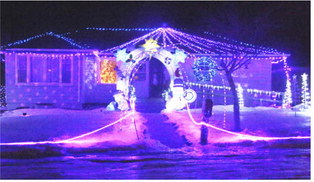Roosevelt County Sees Increase In RSV Cases
Roosevelt County has seen an increase in respiratory syncytial virus, or RSV, cases in recent weeks. Between Dec. 15 and Dec. 28, Roosevelt County has a total of seven cases.
RSV is a common respiratory virus that usually causes mild, cold-like symptoms. Most people recover in a week or two, but RSV can be serious, especially for infants and older adults. In fact, RSV is the most common cause of bronchiolitis and pneumonia in children younger than one year of age in the United States. It is also a significant cause of respiratory illness in older adults.
Symptoms of RSV infection usually include
•Runny nose
•Decrease in appetite
•Coughing
•Sneezing
•Fever
•Wheezing These symptoms usually appear in stages and not all at once. In very young infants with RSV, the only symptoms may be irritability, decreased activity and breathing difficulties.
People infected with RSV usually show symptoms within four to six days after getting infected.
Most RSV infections go away on their own in a week or two. You can manage fever and pain with over-the-counter fever reducers and pain relievers, such as acetaminophen or ibuprofen.
Talk to your healthcare provider before giving your child nonprescription cold medicines, since some medicines contain ingredients that are not recommended for children.
It is important for people with RSV infection to drink enough fluids to prevent dehydration (loss of body fluids).
RSV can spread when an infected person coughs or sneezes.
People infected with RSV are usually contagious for three to eight days.
RSV can survive for many hours on hard surfaces such as tables and crib rails. It typically lives on soft surfaces such as tissues and hands for shorter amounts of time.
People of any age can get an RSV infection, but infections later in life are generally less severe.
There is no specific treatment for RSV infection, though researchers are working to develop vaccines and antivirals (medicines that fight viruses).
There are steps you can take to help prevent the spread of RSV. Specifically, if you have cold-like symptoms you should:
•Cover your coughs and sneezes with a tissue or your upper shirt sleeve, not your hands.
•Wash your hands often with soap and water for 20 seconds.
•Avoid close contact, such as kissing, shaking hands and sharing cups and eating utensils, with others.
In addition, cleaning contaminated surfaces (such as doorknobs) may help stop the spread of RSV.
